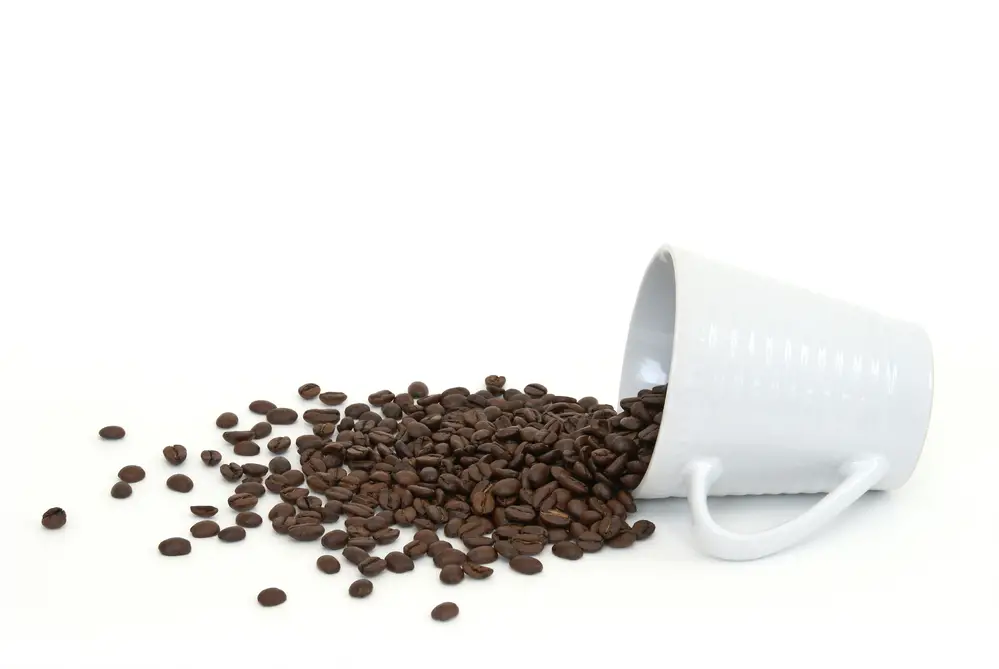Most everyone knows someone who has done it or done it themselves. They’ve “spilled the beans” or divulged a secret by accident that wasn’t supposed to be revealed. How did this saying come about, and why are beans such a bad thing to be spilled?
One of the most popular theories about the origin of this idiom is that it comes from Ancient Greece. When people voted, they would use white beans for “yes” and black beans for “no.” The vote was supposed to be secret, and if that jar of beans were spilled or knocked over, the vote would be revealed, and that person would have “spilled the beans.”
That theory sounds good, but like most idiom origins, it has some holes. The word “spill” has been used with the meaning to “let out” or “divulge” since the late 1500s but not the phrase “spill the beans.” In modern times, however, it has generally been stated that the phrase first showed up in the United States in the early 20th century with the meaning we know today.
But upon taking a closer look, the phrase shows up slightly earlier. It was first used in a sport where we wouldn’t expect it — horse racing — but its meaning is different, though similar, to how we use it today.
In the St. Louis Post-Dispatch in February 1899, “spill the beans” is used in a story about a horse owner named McCafferty who had secured the services of a popular jockey named Troxler to ride one of his horses. But Troxler’s ride in a race didn’t go as planned, and the horse owner probably would have second thoughts about using him the following season since he didn’t follow the race plan. Part of the newspaper story reads:
Troxler certainly did spill the beans for the little Texan (i.e., McCafferty), whether intentionally or not.
It appeared in this context that “spill the beans” meant a mistake on the part of someone, but by looking at other newspaper articles up to 1907 where the term is mentioned (and still in horse racing only), the phrase seems to mean that a horse was a spoiler in a race. They won when they shouldn’t have and spoiled the chances of the favorite that had been bet on.
One example comes from The Courier-Journal of Louisville, Kentucky, in 1906.
Colloquy, George Holle’s smart philly, was the one to “spill the beans,” winning in a common center, after setting all her own pace.
Starting around 1907, the phrase began to be used in other circles outside of horse racing, though still loosely connected, such as this example from The Cincinnati Enquirer about two telegraph operators caught by the police who had wiretapped a pool hall run by bookies. This statement came from one of the men to the police.
“There’s nothing to it,” said Robinson. “I toss up the sponge. You can’t get away with the bookies. We had everything lined up to sting them good and hard across the river, and here you go and spill the beans. Why didn’t you let us go through with it? A fellow ought to have a medal if he’s able to mace a pool room.”
The police didn’t divulge a secret in this instance, but they did spoil a plan.
Interestingly, until the end of 1907, “spill the beans” appeared to only show up in the Midwest, specifically Ohio, Missouri, and Kentucky. It finally makes an appearance at the end of 1907 in the Los Angeles Herald and is still in reference to a spoiler in a horse race. Other papers began using the term in boxing and bowling with the same meaning.
Then in 1908, the phrase found its way into politics, though it continued to have the same meaning as was used with horse racing. The earliest example that I found was from May 29, 1908, in The Times Herald of Port Huron, Michigan, about how a former blacksmith was a power in Congress.
“Tawney, when he came to congress, wasn’t welcomed within the big tent. He had to wait around on the outside. Then the blacksmith got busy. He just walked off the reservation, taking enough insurgent Republicans with him to spill the beans for the big five.”
Even though after this time, the phrase “spill the beans” was still being used to describe sporting events, it began to be used in the way we know it today as to divulge a secret. In a September 1911 Muscatine News-Tribune (Iowa) article from the news wire used the phrase in its headline about a Gary, Indiana, municipal councilman (known as an alderman) charged with bribery titled, “Gary Alderman Spills the Beans and Confesses.”
From this point forward, to “spill the beans” continued to have its meaning as being a spoiler in an event, especially sports, while also being used with the meaning of divulging secret information. This latter meaning began to show up in newspapers across the nation and not just in the Midwest, however. It appears that by the 1950s, the phrase’s use in sports disappeared, and we were left with the meaning we have today.
But why, through all of this, were beans used? There’s really no way to know. Spill your guts or spill it could have been used. Or maybe those beans from ancient Greece are where it all originated from.
Sources: The Phrase Finder, Reader’s Digest, Smithsonian Magazine


